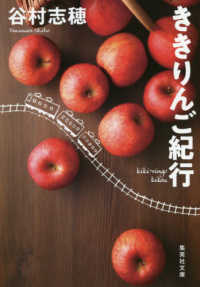Full Description
The Everyday Politics of Resources explores the impact of development processes on the lives, livelihoods, and landscapes of the people of Northwest Vietnam. Over the past two decades, the homes and farms of hundreds of thousands of people have been appropriated to make way for dams, rubber plantations, and mining operations. While this development has enriched the state and private enterprises, it has also resulted in widespread hardship, impoverishment, and long-term environmental destruction.
Nga Dao draws on more than twenty years of on-the-ground research in the region to show how these developments have affected people in vastly uneven ways, creating wealth and stability for some while dispossessing others. Filled with poignant and sometimes angry narratives by those who have lost their land and traditional livelihoods as well as more triumphant stories from those who have prospered under the capitalist transformation of the region, The Everyday Politics of Resources is a timely, urgent examination of modernization's benefits and costs.
Contents
Introduction: The Foundations and Limits of Religious Authority
1. The Cultural Politics of Development
2. State Power and the Conquest of Nature
3. Damming the Black River
4. Subject Making, Market Integration, and Differentiation
5. The Politics of Rubber Plantations
6. Rubber Workers and the Making of Modern Subjects
7. Materialities and Politics of Mining
8. Surviving the Mines, and the Everyday Politics of Marginalization








